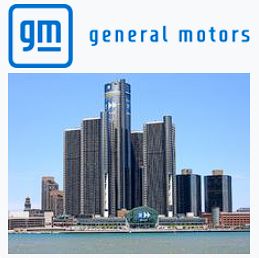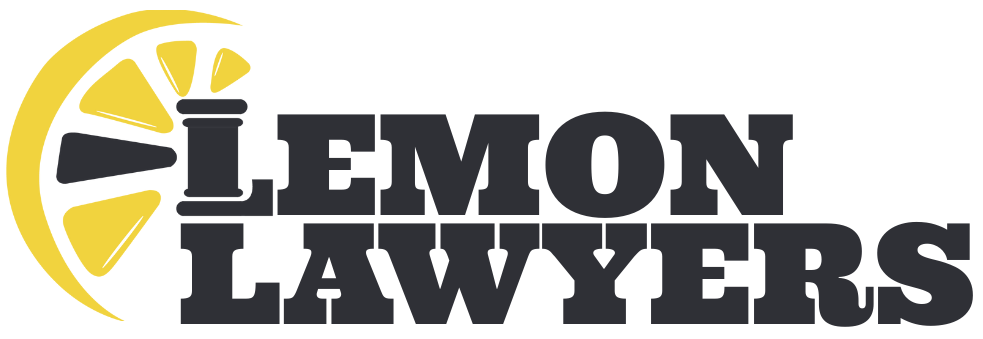Having regrets after purchasing a defective GM vehicle? Not to worry—the GM Lemon Law buyback settlement option provides you with a way to get rid of your defective vehicle and get compensation, in the process. California’s Lemon laws are the among the most robust in the country and these statutes are designed to provide every car buyer with ample protection so there’s absolutely no reason for you to get stuck with a defective vehicle.
In this comprehensive article, we will uncover the details of the GM Lemon Law Buyback Settlement Option. From understanding its implications and functioning to exploring the most prevalent GM defects, affected models, determining your eligibility for compensation, and taking the essential first step towards filing a successful Lemon Law claim, we’ll cover everything you need to know.
Let’s dive in and find a solution to your GM woes!
What is the GM Lemon Law Buyback Option?
If you find yourself constantly grappling with a defective GM vehicle that you purchased or leased in California, take solace in the existence of the state’s Lemon Law and its buyback or repurchase remedy. This remedy is designed to alleviate the financial burden associated with your vehicle, covering various expenses incurred during its purchase.
In essence, the GM Lemon Law buyback settlement option comes into play when General Motors agrees to repurchase the vehicle from you, offering a settlement amount that encompasses:
- The full amount you paid for the vehicle.
- Sales and financing charges.
- Vehicle registration fees.
- Monthly payments made.
- Future monthly payments.
- Out-of-pocket repair expenses.
- Incidental costs, such as towing fees and car rental fees.
To pursue a GM Lemon Law buyback or repurchase settlement, you have several options at your disposal:
- Direct negotiations with the company.
- Obtaining a court verdict.
- Seeking an arbitration ruling.
In the following sections, we will navigate through the buyback process and elaborate on the qualifications necessary to receive compensation under this option.
How Does The GM Buyback Program Work?
If you’ve purchased or leased a GM vehicle that turns out to be defective, you may be able to return it under the buyback program. This option is available for both new and used cars, as long as the issues arose during the original warranty period and the warranty is transferred.
To qualify for the California Lemon Law’s compensation, the defects must be significant enough to impair the car’s safety, functionality, and resale value. Additionally, General Motors must have had several chances to fix the issue but failed to do so.
In the next sections, we’ll explore the ins and outs of lemon laws and what you need to do to be eligible for the program.
Determining if Your Vehicle Meets the Criteria for GM Lemon Law Buyback
California Lemon Law does not provide compensation for every defective GM vehicle. Your vehicle will only be considered a lemon if it meets certain criteria:
- It should have been taken to the dealership for repairs at least two times for a major safety defect.
- It should have been taken to the dealership for repairs at least four times for a non-safety defect or issue.
- It should have been kept at the GM dealership for repairs for a total of more than 30 days (cumulative) due to any combination of defects.
The law states that if any of the mentioned circumstances are met in the first 18 months or 18,000 miles, the car is automatically presumed a lemon. This is known as the legal presumption of Lemon Law.
However, what if your car encounters issues after the initial 18-month/18,000-mile period?
Even beyond these limits, there is a possibility that your car can still be eligible for a buyback reimbursement, provided that the ongoing defects or issues originated within the vehicle’s warranty period, which typically lasts 3 years for bumper-to-bumper warranty or around 5 years for powertrain warranty.
Major GM Vehicle Defects That Could Trigger a Lemon Law Claim
Even though different GM vehicle models may have individual defects, some problems manifest across multiple models. Due to these shared issues, General Motors has recently initiated recalls for specific vehicles. Here are some examples of these common issues:
- Engine oil leakages
- Transmission issues (slippage or jerking)
- Problems with the power steering
- Rough idling
- Faulty AC unit
- Defective electrical system, especially the dashboard lights
- Defective sensors
- Spontaneous shutoff
- Transmission banging into gear
- Delay when shifting
- Excessive vibration
- Electrical issues
- Faulty airbags
- Excessive oil consumption
- Defective seat belts
- Suspension issues
- Steering system defects
- Check engine light
- Engine overheating
Nevertheless, it’s crucial to remember that the defects cited here may not be the only ones that qualify your vehicle as a lemon. Any recurring or persistent defect that severely affects the car’s use, safety, or value may be used to file a complaint.
Watch Video: GM Lemon Law Guide: Overview of Common Defects and Affected GM Models in California
GM Vehicle Models That Are Covered Under Lemon Law
To find out which GM models qualify for Lemon Law protection in California, take a closer look at the list below:
- Buick Enclave
- Buick Envision
- Buick Lacrosse
- Buick Regal
- Cadillac XT4
- Cadillac XT5
- Cadillac XT6
- Cadillac Escalade
- Cadillac CT5
- Cadillac CT6
- Cadillac CT6-V
- Cadillac CTS
- Cadillac-STS-V
- Cadillac XTS
- Chevrolet Spark
- Chevrolet Corvette
- Chevrolet Camaro
- Chevrolet Cruze
- Chevrolet Malibu
- Chevrolet Impala
- Chevrolet Tahoe
- Chevrolet Suburban
- Chevrolet Traverse
- Chevrolet Silverado
- Chevrolet Volt
- GMC Acadia
- GMC Canyon
- GMC Savana
- GMC Sierra
- GMC Terrain
- GMC Yukon
Which GM vehicle model are you having problems with?
If you own a faulty GM vehicle in California (comprising any of the models listed above) and it is currently covered by the manufacturer’s original warranty, you may have a right to compensation.
Our Lemon Law claim assistance is available for the specified all GM models produced from model years 2019, 2020, 2021, 2022, 2023, and 2024.
GM Lemon Law Time Limit
The Statute of Limitations in California establishes a strict four-year deadline for filing a Lemon Law claim, aligning with other warranty or breach of sales contract disputes. Missing this deadline automatically bars you from pursuing a lemon law claim under California law.
Decoding the GM Lemon Law Process
When it comes to the GM buyback process in California under Lemon Law, the procedure is usually straightforward and consists of the following four steps:
Step 1: Determine If You Have A Case
If you’re planning to file a Lemon Law claim in California, the first step is to carefully evaluate the strength of your case. The good news is that most lemon lawyers in the state provide free initial consultations, and you should take advantage of this opportunity. These consultations allow you to have your situation assessed by a legal expert who can tell you right then and there whether or not you have a valid case.
Once you have confirmed that you indeed have a strong case, you can then choose to retain the services of an experienced California Lemon Law attorney. Their expertise can be instrumental in navigating the legal process and negotiating a favorable settlement. Having a skilled lawyer by your side can significantly enhance your chances of securing a positive outcome.
NO WIN-NO FEE
Here’s the best part: you won’t have to pay a dime for the services of a lawyer.
That’s right! You can have a top-quality attorney by your side without any financial burden.
Lemon Law attorneys in California work on a ‘no win-no fee’ basis, meaning their attorney fees are covered by the manufacturer as part of the settlement, and they only receive payment if they win your case!
Step 2: Build Up Your Case
In your GM Lemon Law case, the evidence you’ll primarily rely on will consist of repair documents. It is crucial to diligently maintain accurate documentation of all your repair visits. The repair orders and invoices issued by the General Motors dealership whenever you bring your vehicle in for repairs will serve as crucial evidence in your case. Additionally, other essential documents, such as warranty papers and repair-related receipts, may also be necessary to support your claim.
In situations where the number of repair visits falls short of the requirement, your attorney may advise you to take your vehicle back to the GM dealership for additional repairs. This is done to ensure that you meet the necessary criteria for pursuing your Lemon Law claim.
Step 3: File Your Claim
Once you have all the required documentary evidence and complied with all legal prerequisites, your attorney will commence the process of filing a lawsuit. Filing a case is highly recommended to our clients, as it carries significant weight and compels GM to take your claim earnestly. Once the case is officially filed in court, collected will be bound to adhere to a strict timeline when responding to your compensation claim.
Step 4: Obtain a Settlement
Once your Lemon Law case is officially filed, you can anticipate two potential outcomes: reach a negotiated settlement with GM or choose to proceed with a trial.
Negotiated Settlement
To enhance the likelihood of a favorable resolution, an experienced Lemon Law attorney will ensure that all documents are submitted and all legal criteria are met before filing a claim. Auto manufacturers like GM are well aware of this meticulous preparation and they generally prefer to engage in settlement negotiations to avoid the potential risks and costs of a protracted legal battle that they could ultimately lose.
Going to Trial
Nevertheless, if the settlement offer proposed by GM is deemed unsatisfactory, your attorney may advise you to proceed with a trial. The objective is to obtain a more advantageous settlement proposal or, where necessary, navigate through the formal court process to secure fair compensation for your defective GM vehicle.

Exploring GM Lemon Law Settlements
To satisfy a GM Lemon Law claim, there are several avenues through which the auto manufacturer may compensate you for your faulty vehicle. The three prevailing settlement options are: Buyback or Repurchase, Vehicle Replacement, and Cash and Keep Settlement.
Buyback or Repurchase
General Motors might offer a buyback or repurchase settlement to compensate for your defective vehicle. In the next section, we’ll thoroughly explain the components of the GM Lemon Law buyback settlement and how it works.
Vehicle Replacement
One potential result of lemon law litigation is the court ordering the manufacturer to provide the consumer with a brand new vehicle as a replacement. The manufacturer might also voluntarily agree to replace the consumer’s vehicle to settle the claim.
If you decide to accept this settlement option, the law mandates that the replacement vehicle should closely resemble your original vehicle and come with the same warranties. Moreover, if you had purchased additional options like rust proofing or undercoating, these features must also be applied to the replacement vehicle.
Lastly, as part of this agreement, General Motors is obligated to reimburse you for any out-of-pocket expenses related to repairs, towing, and car rentals that arose from the vehicle’s issues.
Cash and Keep Settlement
Even if the issues with your GM car are not severe enough to label it as a lemon, you still have the option to file a claim for compensation. This situation applies to problems that may reduce the vehicle’s resale value but do not pose a safety threat or prevent you from operating it. Examples include issues like poor paint jobs, engine noises, or bothersome sounds from the sunroof.
In such cases, the court may require GM to provide you with a fixed amount of money as compensation for the repair issues and any additional expenses you may have faced as a result. Additionally, you would be allowed to keep the vehicle.
Prevailing in Your GM Lemon Law Claim: What To Expect
Best Outcome
In a Lemon Law claim for a defective GM vehicle, the GM Lemon Law buyback settlement is the most favorable outcome you can anticipate. This option not only enables you to recover the entire purchase price of the vehicle but also facilitates reimbursement for any out-of-pocket expenses you incurred during the repair process, plus other costs such as towing, temporary rental vehicles, etc.
Getting Back to Normal
By winning this settlement with the guidance of your attorney, you can finally free yourself from the burden of dealing with a defective vehicle and obtain a brand-new vehicle that is entirely free of defects. Imagine the relief of living without the perpetual stress and frustration that accompany frequent repairs, allowing you to move forward with your life.
Win For Consumer Rights
By taking the necessary steps to file a case and emerge victorious in your GM claim, you are actively contributing to the advancement of consumer rights in California. As a car owner, you deserve to have quality in the products you invest in, particularly when significant amounts are at stake. Big companies, such as GM, bear the responsibility of guaranteeing the quality of their products and shouldn’t be allowed to get away without consequences when they fail in this responsibility.
Watch VIDEO: Consult With a GM Lemon Law Attorney Free of Charge
Watch Video: GM Lemon Law Guide: Overview of Common Defects and Affected GM Models in California
Time to Take Control: Contact a GM Lemon Law Lawyer Today
Feeling lost about what to do next? If you’re the owner of a defective General Motors vehicle in California, experiencing ongoing issues or defects covered within the warranty period, and the manufacturer has been unsuccessful in resolving them despite multiple attempts, you may be entitled to compensation.
The solution is clear as day! Take the next step and initiate the Lemon Law process by reaching out to a skilled Lemon Law attorney in California. Your attorney will thoroughly evaluate the merits of your claim, provide individualized legal advice, and expertly guide you through the claims process.
Don’t overthink the situation. Seize control and secure the compensation you deserve. Remember, the law is on your side, and you shouldn’t have to be stuck with a lemon!
ABOUT GENERAL MOTORS (GM)
 General Motors Company (GM) is a multinational automotive manufacturing company based in Detroit, Michigan, United States. The company is renowned for its ownership and production of four core automobile brands: Chevrolet, GMC, Cadillac, and Buick. In 2022, GM held the title of the largest automaker in the United States by sales and held this position worldwide for 77 years until 2008 when Toyota took the lead.
General Motors Company (GM) is a multinational automotive manufacturing company based in Detroit, Michigan, United States. The company is renowned for its ownership and production of four core automobile brands: Chevrolet, GMC, Cadillac, and Buick. In 2022, GM held the title of the largest automaker in the United States by sales and held this position worldwide for 77 years until 2008 when Toyota took the lead.
Presently, General Motors continues to thrive as a company, ranking 25th in total revenue among all American companies on the Fortune 500 and 50th on the Fortune Global 500. The company is deeply committed to electric vehicles, as evidenced by their announcement in January 2021 to cease the production and sale of vehicles utilizing internal combustion engines, including hybrid and plug-in hybrid vehicles, by 2035. This decision forms part of GM’s plan to achieve carbon neutrality by 2040.
Although General Motors has a reputation for producing durable and reliable cars, it has faced its fair share of complaints concerning defective vehicles that exhibit issues within the warranty period. In a 2022 study conducted by CALPIRG Education Fund, the Consumers for Auto Reliability and Safety (CARS) Foundation, and Frontier Group, it was revealed that GM had the highest number of Lemon Law cases filed against the company per vehicle sold between 2018 and 2021.
